A warm place for playwrights during the cost of living crisis
- Published
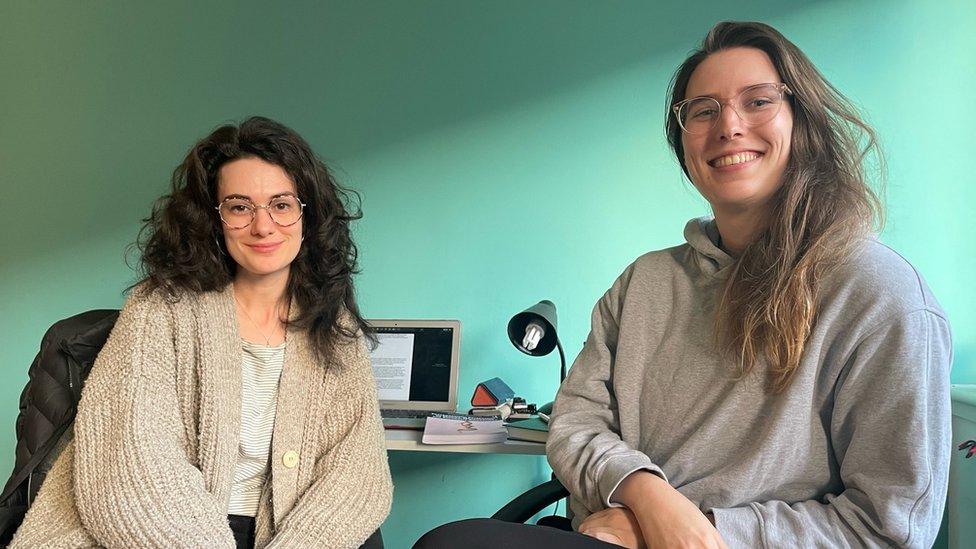
Rebecca Dunn and Claire Macallister are working on a play together
Playwrights have created warm spaces to support writers during the cost of living crisis.
A recent survey by the Playwrights' Studio found that playwrights often make less than the average income in Scotland.
Many have several jobs and regularly face financial insecurity, having also lost work during the Covid pandemic.
The Coorie In scheme will run for six months in arts venues in Aberdeen, Glasgow, Birnam, Greenock and Stirling.
The Centre for Contemporary Arts (CCA) in Glasgow will host writers weekly in the Playwrights' Studio headquarters.
Many said they turned up as they could not afford to heat their homes during the winter months.
Jayne Brown, 45, from Donegal, grew up in Easterhouse in Glasgow. She started writing freelance after taking night classes at the University of Glasgow.
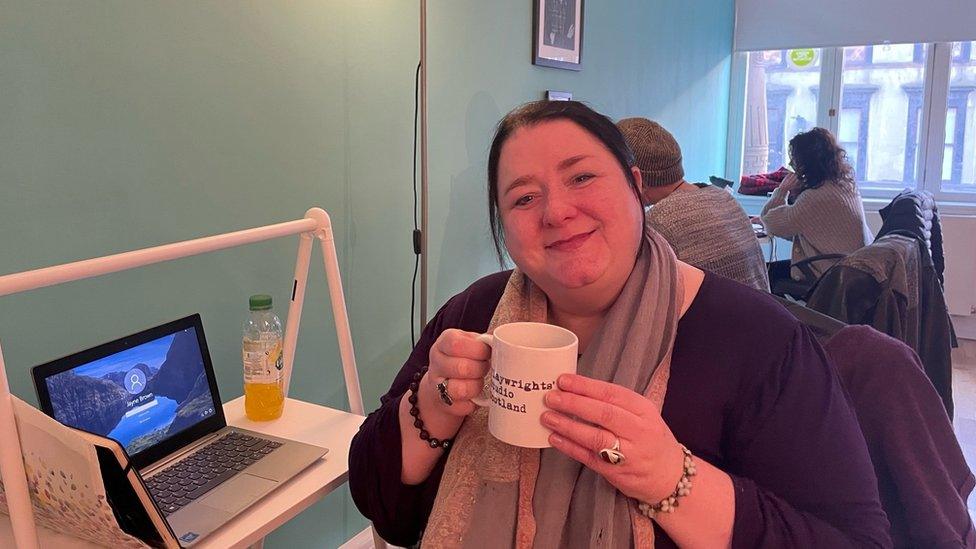
Jayne Brown is writing her first play for a theatre in Easterhouse
She is writing her first play for her local theatre and also works part time at a museum.
Jayne told BBC Scotland she would otherwise struggle to heat her home during the winter months without access to the space.
"I've never written a play before, I've mostly done short stories and poetry," she said.
"So this is the ideal place to be, everyone is so lovely and supportive. I live in my own place and writing can be quite a solitary thing.
"The increase in heating bills is just an extra stress hanging over everyone just now."
While the energy crisis loomed over the writers, they were also attracted to the mental health benefits of the new community.
Claire Macallister, 27, from Melbourne in Australia, said the project helped writers meet each other after the pandemic.
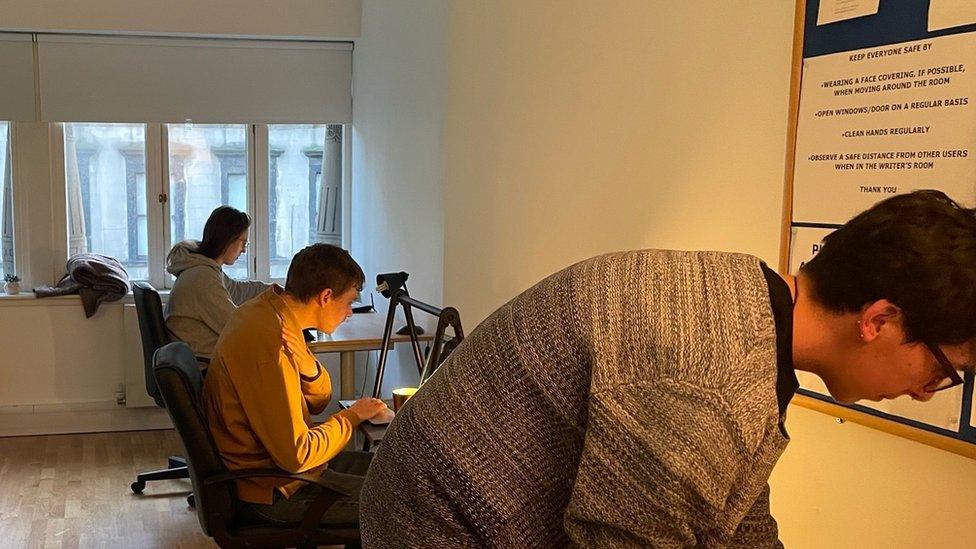
The space will be available for six months
"Having a space that you know is going to be warm and filled with other creative people working in the same way, there's a real kind of comfort in that," she said.
"If I'm in a public space, I wouldn't feel comfortable staying more than a few hours.
"But this takes off such a huge amount of pressure, and we can use it and the resources for free."
Rebecca Dunn, 29, from Kent, has three jobs while also writing a play with Claire.
"You get to the point where it's so cold at home that you can't focus," she said.
"There's also something about going into a space to work and discuss your ideas.
"I'm in a flat share and it can be quite distracting, so it's good to have that mental separation."
Many of the writers are putting together scripts to apply for funding. But despite weeks of work, the scripts might not even be selected.
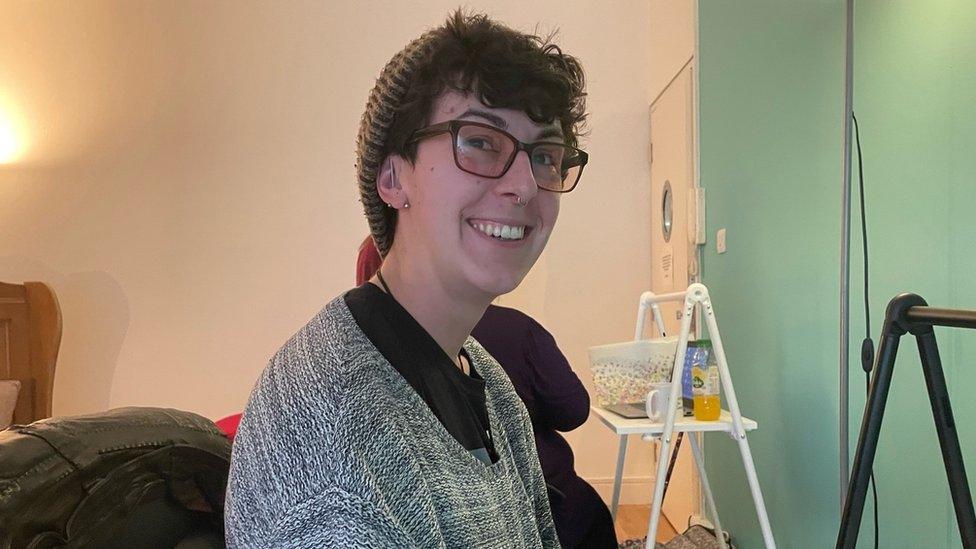
Kerry said playwrighting was still a risk after the pandemic
So a second or third job is a necessity for most.
"You could put so much work into a script, but unless a company agrees to run it, you could make absolutely nothing off of it," said Kerry Lane, 28, from Dunedin in New Zealand.
"There's such a risk," Rebecca added.
"Our last play was supposed to show in London but then the pandemic happened and it never ran.
"You don't really get solid commissions until much further on in your career."
Guy Woods, 24, from London, works in a restaurant four days a week to pay the bills.
"I'm working on a play with my theatre company before we send it off for funding applications," he said.
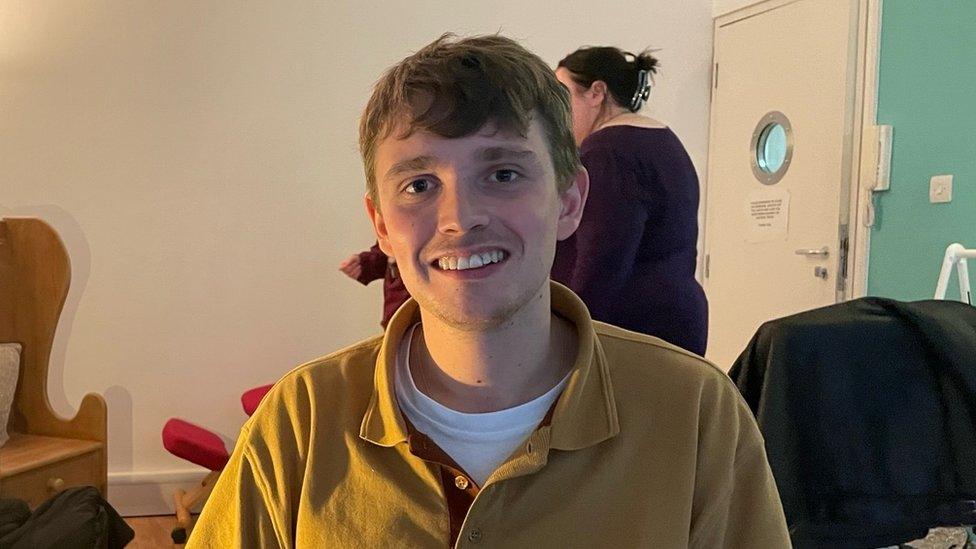
Guy Woods is hoping to secure funding for his play
"I mostly work at the restaurant later in the day and at the weekends, so I can work on the script during the daytime.
"It's unfair on my flatmate if I'm heating the house all day while she's off at work."
Creative director at the Playwrights' Studio, Louise Stephens, said the idea was funded by Creative Scotland's cultural recovery fund.
"Playwrights expressed to us that they were worried about heating bills and keeping warm," she said.
"We're also coming out of the pandemic and people are missing interaction and human company, which is a perfect storm for freelance artists.
"Not only have they lost work and faced financial instability for two years, now there's a cost of living crisis."
She added: "A recent survey we conducted found that playwrights in general make less than the average income in Scotland and a lot of people make up their career doing different things.
"It's really hard to have a sustainable career in the arts, so it's important we support people early in their career and throughout as they could be writing the next big Netflix show in a couple years.
"The arts are important to everyone's wellbeing and we want to help improve the living conditions of the people involved, even in a small way."